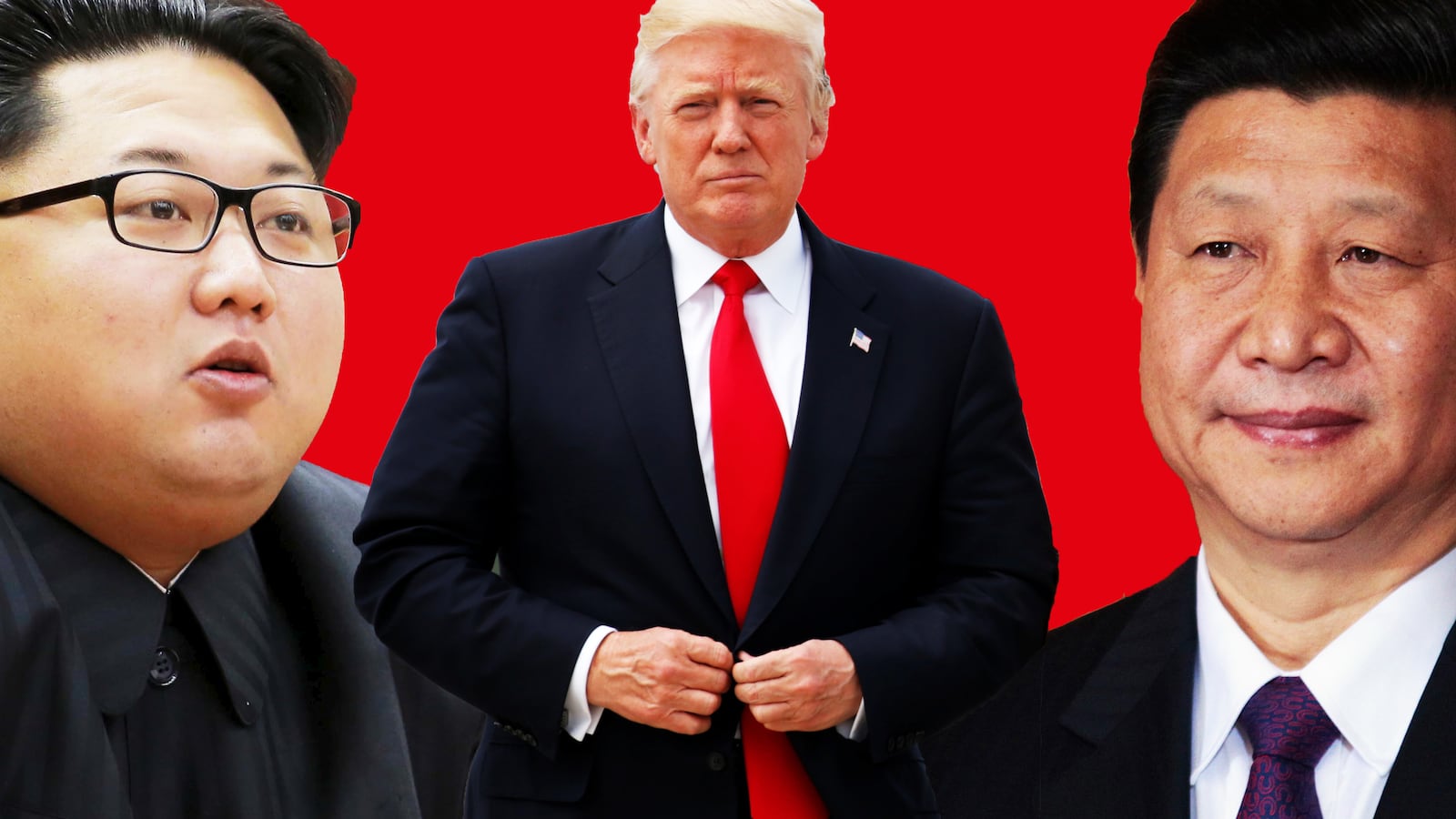The horrific death of Otto Warmbier looks like it forced the hand of President Trump.
A day after the 22-year-old student passed away, the American leader, in what may end up as the world’s most consequential tweet, signaled that the United States will soon act on its own to disarm North Korea.
“While I greatly appreciate the efforts of President Xi & China to help with North Korea, it has not worked out,” Trump tweeted Tuesday afternoon. “At least I know China tried!”
The announcement, considered in the context of Trump’s other comments on the subject, appears ominous. Trump on April 11 said America would defang North Korea by itself if China did not do so. “North Korea is looking for trouble,” he tweeted then. “If China decides to help, that would be great. If not, we will solve the problem without them! U.S.A.”
On Tuesday, Trump in effect declared it was time for the U.S. to act on its own.
Many had assumed that Trump would wait until at least the middle of July before going after the Democratic People’s Republic of Korea. Japanese newspapers reported that the American leader at the early April Mar-a-Lago summit gave his Chinese counterpart, Xi Jinping, 100 days—until July 16—to deal with Pyongyang. That timeframe, by the way, matched up with Commerce Secretary Wilbur Ross’s “100-day action plan” on trade, announced at the end of the Trump-Xi meeting.
Yet the outrage over the brutalization of Warmbier looks like it accelerated Trump’s timetable.
Now the administration will have to act. What will it do?
There are many “non-kinetic” options. The most effective of them restrict the flow of funds to the Pyongyang regime. The U.S. can, as Secretary of State Rex Tillerson suggested Tuesday, prevent Americans from traveling to North Korea. The administration can also tighten sanctions on the North. Moreover, it can do a far better job of enforcing existing measures designed to stanch the flow of funds into Kim regime coffers.
All of these measures would help, of course, but the big flows of cash to North Korea originate from China or pass through Chinese financial institutions. Bank of China, one of China’s “Big Four” banks, was named in a recent U.N. panel report for its active participation in a conspiracy to hide illicit money transfers for North Korea.
Chinese banks in the border city of Dandong have regularly handled funds for suspicious transactions involving the North.
And Chinese banks were almost certainly involved in the February 2016 cybertheft of $81 million from the account of the central bank of Bangladesh at the New York Federal Reserve Bank. U.S. officials think North Korea was the mastermind but that Chinese middlemen helped “orchestrate the theft.” If Chinese middlemen orchestrated, Chinese banks were almost certainly participants in the crime.
So to starve Pyongyang into disarming, Trump will have to go after China.
He already has the tools to do so. By doing nothing more than enforcing U.S. law, Trump could put Chinese banks out of business by denying them access to their dollar accounts in New York.
Trump administration officials, to their credit, have talked about unplugging Chinese banks, but there is no indication they have now summoned the considerable political will necessary to act.
The failure to summon political will to impose costs on China means Trump, if he honors his promise to disarm North Korea, will eventually have to resort to “kinetic” options, perhaps soon.
Eric Bolling will not be surprised if Trump uses force. “It may be time for a preemptive strike,” the Fox News anchor, obviously angered by the North’s treatment of Warmbier, said Monday on air.
Is war really the next step? Perhaps so, if for no other reason than the Kim regime has looked unstable for some time. If it is in fact unstable, it will not be able to deal with the international community in good faith. If it cannot deal with the international community in good faith, the chances for any negotiated settlement with the Trump administration appear slim.
Warmbier is the first detained American civilian known to have been killed by the North Koreans. His killing suggests, among other things, that something is wrong in Pyongyang. Kim Jong Un, at the very least, now looks reckless and dangerous.
So any decision by Trump to use force could trigger history’s next great conflict. Decisions on North Korea are about to become extraordinarily consequential.






